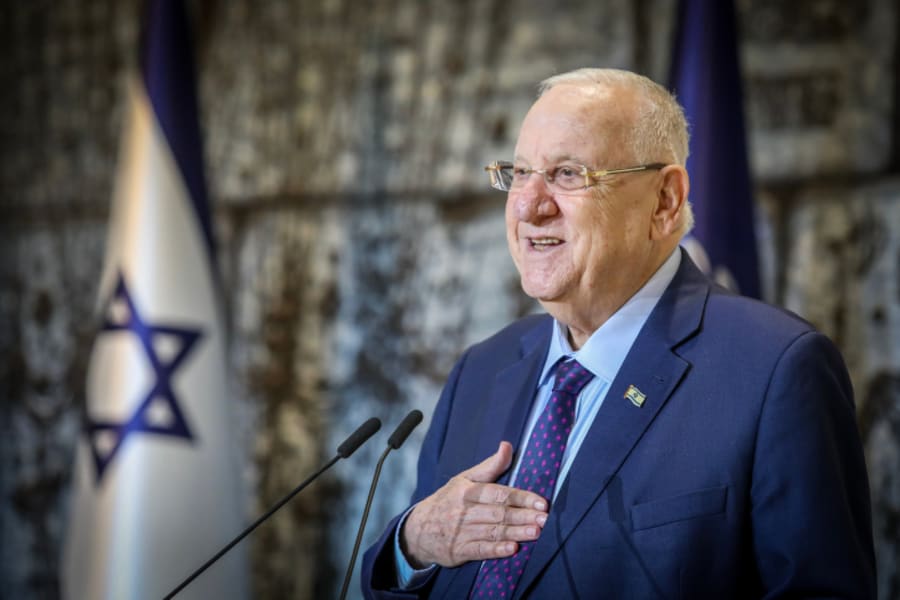President Rivlin gives Netanyahu first shot at building a coalition while acknowledging public concerns that Netanyahu is now on trial
Israeli president says he does so doubting Netanyahu will succeed – and fearing for the future of his country

Appearing reluctant and outlining the reasons behind his decision, Israeli President Reuven Rivlin announced he will give the first chance to build a government to Prime Minister Benjamin Netanyahu, but that he did so with fear for the future of Israel.
"This is not an easy decision on a moral and ethical basis, in my mind. As I said at the beginning of my remarks, the State of Israel is not to be taken for granted. And I fear for my country. But I am doing what is required of me as President of the State of Israel, according to the law and to the ruling of the court, and realizing the will of the sovereign – the Israeli people," Rivlin said, speaking at the opening session of the 24th Knesset.
He noted that during his seven-year term he has done this five times – a testament to the past few years of political instability and the inability of any candidate to form a stable government. Netanyahu has been prime minister since 2009.
"Unfortunately, not one of the candidates has a good chance of building a government," he said about this round.
"The law requires that I give one of the candidates the mandate to build a coalition," he said.
Rivlin said he preferred to turn the task of choosing a prime minister over to the Knesset, but he was unable to do so.
According to law, a prime minister can continue in his role even if he is under trial, as Netanyahu currently is.
"I know the position held by many, that the president should not give the role to a candidate that is facing criminal charges, but according to the law and the decision of the courts, a prime minister can continue in his role even when he is facing charges. Moreover, the question of giving the role to a candidate facing criminal charges was one of intense political and public disagreement over the recent election campaigns. Because of that, I believed that the president should avoid deciding based on that consideration out of a sense of responsibility for the institution of the presidency and the trust in which it is held by all parts of the people," he said. "It is the role of the Knesset to decide on the substantive and ethical question of the fitness of a candidate facing criminal charges to serve as prime minister."
Rivlin received 52 recommendations for Netanyahu; 45 Members of Knesset recommended Yair Lapid of the centrist Yesh Atid party; 7 Members of Knesset recommended Yamina's Naftali Bennett and 16 Members of Knesset did not make a recommendation.
"Given this state of affairs, when there is no majority of 61 Knesset Members supporting a particular candidate, and without additional considerations indicating the chances of the candidates to form a government, I have come to a decision based on the numbers of recommendations, which indicates that Member of Knesset Benjamin Netanyahu has a slightly higher chance of forming a government," Rivlin said. "Accordingly, I have decided to entrust him with the task of doing so."
Netanyahu will now have 28 days to try to cobble together a coalition of more than 60 Knesset members.
With the ultra-nationalist party Religious Zionism refusing to join a coalition backed by the Islamic Arab party, Ra’am, Netanyahu is going to have a tough time building a coalition. He needs to lure not just Ra’am but also Bennett's Yamina party. He is also expected to target New Hope as well, in an attempt to bring some defectors into his fold, if not the whole party.

Nicole Jansezian was the news editor and senior correspondent for ALL ISRAEL NEWS.














